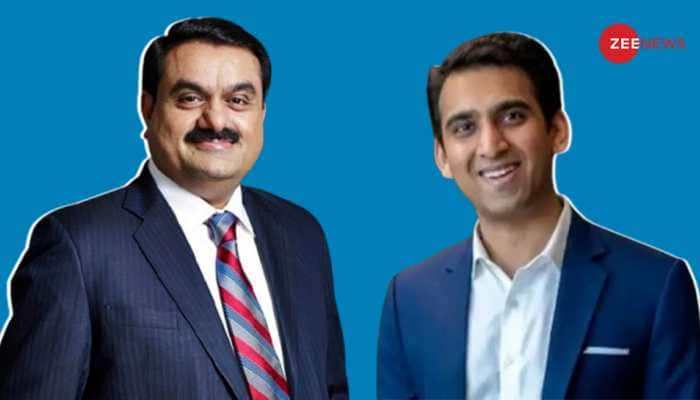India faces acute organ donation crisis!
Each year hundreds of Indians die while waiting for an organ transplant.
)
 Ankita Chakrabarty/ Zee Research Group/ Delhi
That Union Minister Vilasrao Deshmukh died last year in a Chennai hospital failing to secure a liver transplant on time underscores India’s acute organ transplantation crisis. Each year hundreds of Indians die while waiting for an organ transplant. The reason: there is acute imbalance between the number of organs donated and the number of people waiting for a transplant. Systemic hurdles and rigid social mindset further portends a bleak future for organ transplantation in India.
Nearly 25,000 liver transplants (LT) are currently being performed globally every year. Against an annual requirement of 2,00,000 LTs, Indian doctors could perform a dismal 500 in 2009 and 750 in 2010, according to a review article published in Indian Journal of Transplantation 2011.
The lack of availability of donors stems from the problem of certifying brain deaths in the country, according to Pallavi Kumar, executive director at Mohan Foundation, a non–government organisation focusing on organ donation.
“Lack of awareness and improper infrastructure facilities are the main reasons behind the existing scenario. Finding a donor is the main issue in the country. Also, there is a problem of certifying brain deaths in our country. If people are not aware of brain deaths, it becomes difficult to convince the relatives of the patients for organ donation,” she laments.
The situation is not very different in relation to heart transplants. While annually around 4,000–5,000 patients in Indian require a heart transplant, so far as in 2011 only 70 heart transplants have been conducted across the country, according to an article ‘Cardiac transplantation: History and progress’ published in Indian Journal of Transplantation in 2011.
Religious and societal mindsets haven’t helped the cause either, says Dr PK Dave, head of orthopaedics at Rockland Hospital.
“There are a lot of myths associated with organ donation which needs to be addressed to solve this problem. Most Indians generally believe that it is something against the nature and an individual’s soul will not rest in peace if the body parts are mutilated,” he stresses.
The lack of centralised registry in India for organ donation acts as a major hurdle for the people to donate organs.
“Centralised registry helps in maintaining a data base of the organs and it is an organised way of sharing the organs in a transparent way. This registry is available in other countries which make the donation system easy unlike India,” Kumar at Mohan Foundation, says.
According to the National Programme for Control of Blindness (NPCB) 2012-13 report, India abysmally lacks corneas required for eye transplantations. In 2012-13, the country collected only 4,417 corneas against a whopping requirement of 80,000-1, 00,000 per year.
Rajiv Pradhan, head of the Tej Kohli Foundation, a non–government organisation working to promote eye donation in India, earlier told to Zee News on October 8, 2012, “Once a person dies, there is a lot of hesitation from the relatives as the general view stands that if the corneas gets extracted and is transplanted it would lead to deformities.”
Government of India enacted the ‘Transplantation of Human Organs (Amendment) Act’ in 2011 which made provisions for simplifying the procedure for human organ donation: The provisions included retrieval centers’ and their registration for retrieval of organs from deceased donors, swap donation and a mandatory inquiry by the registered medical practitioner of a hospital in consultation with transplant coordinator (if available) from the near relative(s) of potential donor admitted in Intensive Care Unit and informing them about the option to donate and if they consent to donate, inform the retrieval centre for retrieval of organs.
Suggesting remedies, Kumar at Mohan Foundation advises, “There is a need to have more transplant coordinators who will help in counseling to manage the system of organ donation. More donations should happen in the public set-up.”
Ankita Chakrabarty/ Zee Research Group/ Delhi
That Union Minister Vilasrao Deshmukh died last year in a Chennai hospital failing to secure a liver transplant on time underscores India’s acute organ transplantation crisis. Each year hundreds of Indians die while waiting for an organ transplant. The reason: there is acute imbalance between the number of organs donated and the number of people waiting for a transplant. Systemic hurdles and rigid social mindset further portends a bleak future for organ transplantation in India.
Nearly 25,000 liver transplants (LT) are currently being performed globally every year. Against an annual requirement of 2,00,000 LTs, Indian doctors could perform a dismal 500 in 2009 and 750 in 2010, according to a review article published in Indian Journal of Transplantation 2011.
The lack of availability of donors stems from the problem of certifying brain deaths in the country, according to Pallavi Kumar, executive director at Mohan Foundation, a non–government organisation focusing on organ donation.
“Lack of awareness and improper infrastructure facilities are the main reasons behind the existing scenario. Finding a donor is the main issue in the country. Also, there is a problem of certifying brain deaths in our country. If people are not aware of brain deaths, it becomes difficult to convince the relatives of the patients for organ donation,” she laments.
The situation is not very different in relation to heart transplants. While annually around 4,000–5,000 patients in Indian require a heart transplant, so far as in 2011 only 70 heart transplants have been conducted across the country, according to an article ‘Cardiac transplantation: History and progress’ published in Indian Journal of Transplantation in 2011.
Religious and societal mindsets haven’t helped the cause either, says Dr PK Dave, head of orthopaedics at Rockland Hospital.
“There are a lot of myths associated with organ donation which needs to be addressed to solve this problem. Most Indians generally believe that it is something against the nature and an individual’s soul will not rest in peace if the body parts are mutilated,” he stresses.
The lack of centralised registry in India for organ donation acts as a major hurdle for the people to donate organs.
“Centralised registry helps in maintaining a data base of the organs and it is an organised way of sharing the organs in a transparent way. This registry is available in other countries which make the donation system easy unlike India,” Kumar at Mohan Foundation, says.
According to the National Programme for Control of Blindness (NPCB) 2012-13 report, India abysmally lacks corneas required for eye transplantations. In 2012-13, the country collected only 4,417 corneas against a whopping requirement of 80,000-1, 00,000 per year.
Rajiv Pradhan, head of the Tej Kohli Foundation, a non–government organisation working to promote eye donation in India, earlier told to Zee News on October 8, 2012, “Once a person dies, there is a lot of hesitation from the relatives as the general view stands that if the corneas gets extracted and is transplanted it would lead to deformities.”
Government of India enacted the ‘Transplantation of Human Organs (Amendment) Act’ in 2011 which made provisions for simplifying the procedure for human organ donation: The provisions included retrieval centers’ and their registration for retrieval of organs from deceased donors, swap donation and a mandatory inquiry by the registered medical practitioner of a hospital in consultation with transplant coordinator (if available) from the near relative(s) of potential donor admitted in Intensive Care Unit and informing them about the option to donate and if they consent to donate, inform the retrieval centre for retrieval of organs.
Suggesting remedies, Kumar at Mohan Foundation advises, “There is a need to have more transplant coordinators who will help in counseling to manage the system of organ donation. More donations should happen in the public set-up.”Stay informed on all the latest news, real-time breaking news updates, and follow all the important headlines in india news and world News on Zee News.
Advertisement
Live Tv
Advertisement







)
)
)
)
)
)
)
)
)
)
